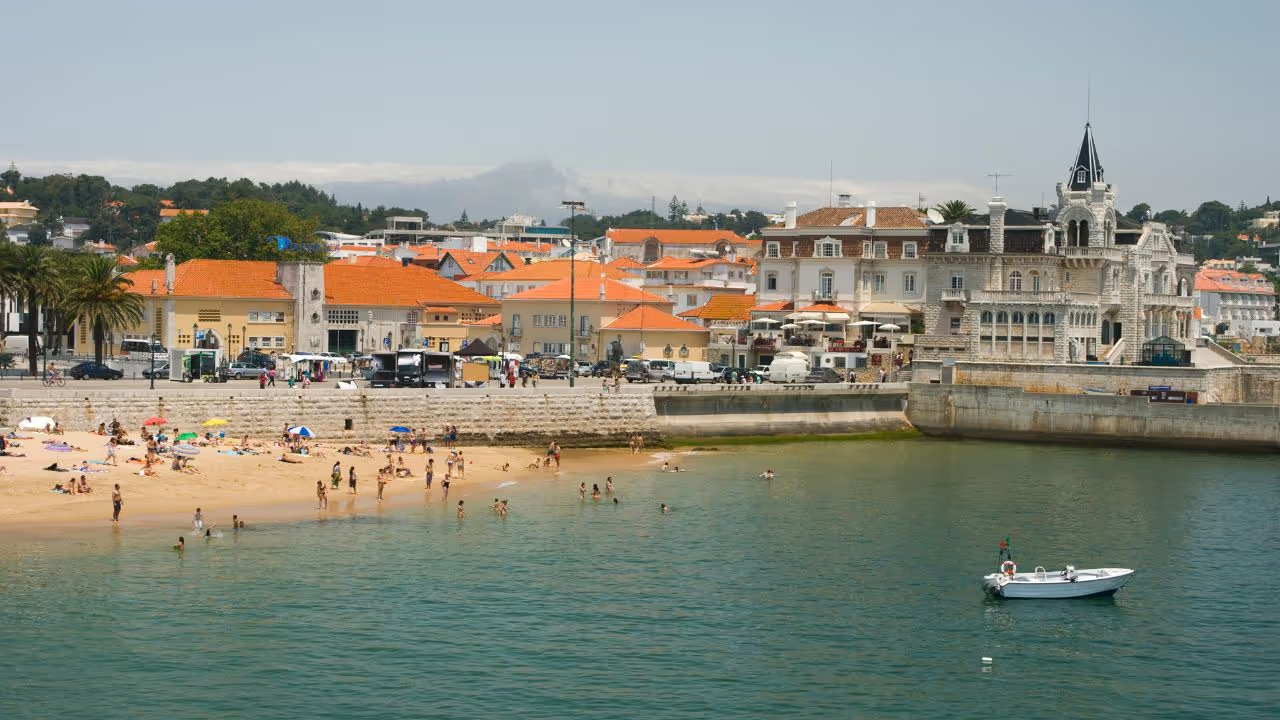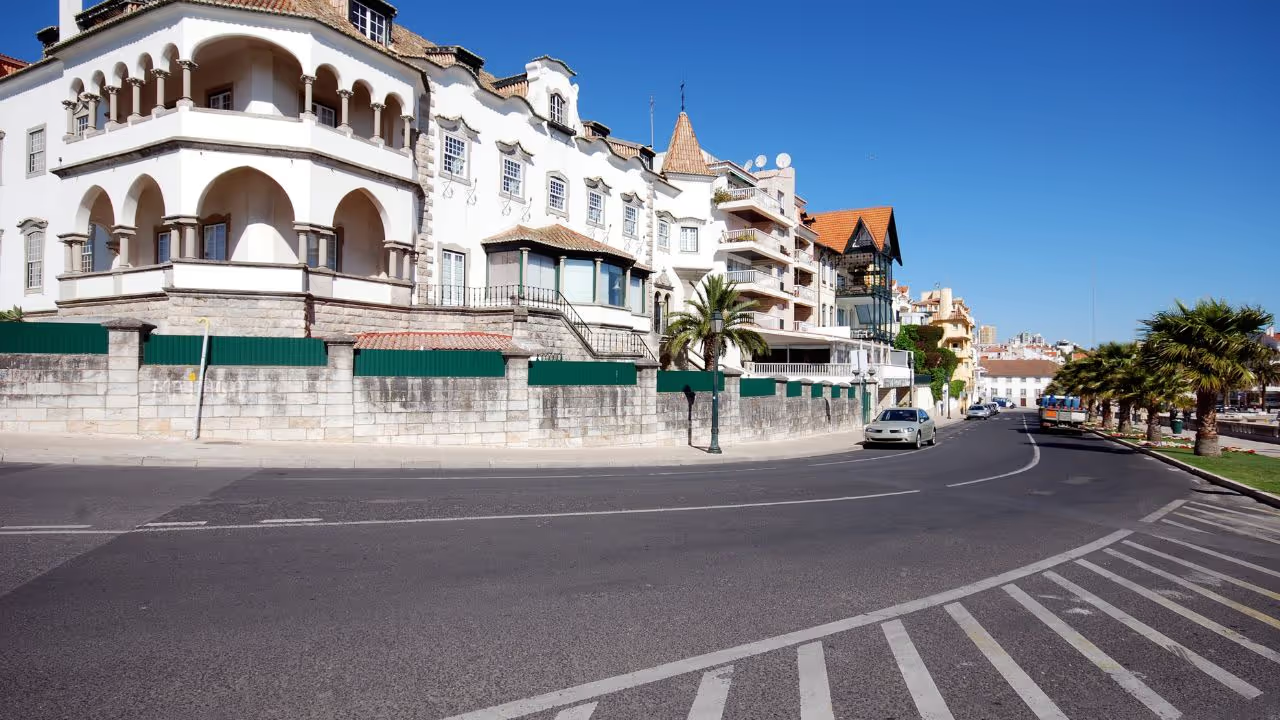Vacation Rental Cascais: A Host’s Guide

Cascais draws visitors year-round with its coastline, culture, and proximity to Lisbon. If you consider offering a vacation rental here, understanding market dynamics, regulations, property prep, and management is key. Below are five sections covering overview, licensing, demand & returns, property setup, and working with experts.
1. Overview of Vacation Rental Market in Cascais
Cascais is a popular destination for beach holidays, cultural trips, and Lisbon excursions. The town’s mix of historic centre, seaside neighbourhoods like Guia, and suburban spots (e.g., Alcabideche) means varied vacation rental types: apartments with sea views, townhouses near the promenade, or villas with pools inland.
Short-term rental platforms report healthy activity in Cascais. For instance, a typical listing is booked about 259 nights a year, with a median occupancy of 71% and average daily rate around €132 (airbtics.com). As of early 2025, there are roughly 887 active Airbnb listings, generating median host income near €33K annually (airbtics.com). Broader data indicate average daily rates around €214 and occupancy near 60% on multiple platforms (airdna.co). Demand peaks in summer (June–September), with shoulder seasons (spring, early autumn) also busy due to mild weather (sunpope.com). Winter sees lower but steady bookings from city-breakers and remote workers seeking quieter stays.
Vacation rental yields in Cascais can range around 5% of property value annually, depending on location and seasonality (beglobalproperties.com). Compared with long-term rentals, short-term may bring higher gross income, though costs (cleaning, utilities, management fees) are also higher. Some owners mix short- and long-term lettings outside peak months.
Neighbourhood variation matters: Cascais Central often commands higher nightly rates but may have stricter regulations or noise. Guia or Estoril may suit families wanting beach access, while parts of Alcabideche or Birre could offer spacious villas away from crowds but require marketing for guests willing to drive. Understanding local profiles—what visitors seek—guides property choice.
Outbound: For tourism context in Cascais, see Wikipedia: Cascais (en.wikipedia.org). For climate/season guidance: Cascais Weather Guide (cascais-portugal.com).
2. Licensing & Regulations
In Portugal, short-term rentals (“Alojamento Local” or AL) require registration and compliance with municipal rules. Cascais municipality enforces AL licensing to balance tourism benefits and community impact.
- AL Registration: You must register the property as Alojamento Local with the local Câmara and tax authorities. This involves providing property details, safety certificates (fire prevention, gas/electrical compliance), and proof of property ownership or rental agreement if leasing the rental.
- Local requirements: Cascais may require minimum safety standards: smoke detectors, emergency exits, and clear house rules for guests. Some buildings (e.g., condominium rules) may restrict short-term lets—always check HOA statutes.
- Tax registration: After AL approval, declare rental activity to Autoridade Tributária, obtain NIF (if not resident), and issue invoices for each booking. VAT may apply if you offer additional services (e.g., breakfast), but basic rental income usually taxed under IRS or corporate regime. Consult Documents & Taxation for fiscal steps.
- Insurance: Standard home insurance may not cover short-term rentals; get specific coverage for liability, property damage, and guest injury.
- Condominium & community: If in a shared building, inform neighbors or building management. Some condominium regulations forbid or limit AL; non-compliance can lead to fines.
- Data privacy & guest information: Portuguese law may require reporting guest details to authorities. Ensure compliance with GDPR when storing guest data collected through booking platforms.
- Seasonal variations in rules: Regulations can evolve; e.g., restrictions on number of AL licenses in certain zones or additional fees during high season. Keep updated via Contact us or local legal advisors.
- Fines & penalties: Operating without AL license risks fines and forced closure. Late tax filings also incur penalties.
- Practical tip: Engage a local lawyer or AL consultant early to verify building statutes and complete registrations. Many hosts find it smoother to let a property management firm handle compliance steps.
Internal: For landlord-focused advice, see Landlord guide. For full vacation rental services, see Vacation Rental Services.
3. Market Demand, Seasonality & Returns
Understanding when guests come, what they pay, and expected returns shapes your hosting strategy.
- Seasonality: Peak months in Cascais run June to early October. Occupancy often above 80% in summer. Shoulder seasons (April–May, September–October) see good demand due to pleasant weather and fewer crowds. Winter (November–March) is quieter but still attracts weekend visitors, remote workers, and occasional events in Lisbon or Cascais (festivals, conferences).
- Guest profiles: Summer: families and holiday-goers from Europe. Shoulder: couples, remote workers, cultural tourists. Winter: city-break visitors, professionals on remote stints, retirees enjoying milder climate. Tailoring property amenities (fast Wi-Fi, heating) helps attract off-season guests.
- Pricing strategy: Dynamic pricing tools help adjust nightly rates based on demand, events, and season. Typical average daily rates: around €130–€200 depending on property size and location (airbtics.com). Higher-end apartments in Cascais Central or beachfront properties command premium rates; suburban villas may need competitive pricing plus marketing advantages (pool, garden).
- Occupancy & revenue: Median occupancy ~60–71% across platforms (airbtics.com, airdna.co). Annual revenue per listing varies; smaller apartments might net €15K–€25K, larger properties €30K+ depending on nights booked and pricing. Calculate net returns after expenses: utilities, cleaning, platform fees, management fees, taxes, maintenance.
- Costs & margins: Cleaning between guests, laundry, restocking consumables add up. Utilities (electricity, water, internet) often covered by host; factor into nightly rate. Management companies charge around 15–25% of booking revenue. Insurance and compliance costs also reduce net.
- Competition & differentiation: Many listings in Cascais; to stand out, invest in good photography, clear descriptions, guest reviews. Unique touches—local guidebooks, welcome packs with local products—help. Consider niche marketing: surf enthusiasts near Guincho, or business travelers needing workspace.
- Risk factors: Regulatory changes can impact availability; economic downturns may reduce tourism. Flexibility to switch to longer-term rentals in off-season can stabilize income.
- Outbound data tools: Use AirDNA or Airbtics for deeper analytics on occupancy trends and ADR; e.g., AirDNA reports average RevPAR around $123.6 in Cascais (airdna.co).
4. Property Selection & Preparation
Choosing and prepping the right property maximizes guest satisfaction and returns.
-
Location considerations:
- Cascais Central: near beach, restaurants, cultural sites. Pros: high nightly rates; cons: higher purchase price, stricter condo rules, noise.
- Guia / Estoril: attractive seaside promenades and Casa da Guia. Good for families wanting ocean views.
- Suburbs (Birre / Alcabideche): larger villas with pools/gardens. Attract guests seeking privacy or longer stays, but require marketing that highlights transport convenience.
- Proximity to transport: easy access to Cascais train station or bus routes helps guests without cars.
-
Property type & layout:
- Apartments: 1–3 bedrooms are popular. Sea-view or terrace adds value. Ensure efficient use of space.
- Villas: multi-bedroom homes, garden/pool. Ideal for groups or families. Consider additional maintenance.
- Unique properties: historic townhouses or design-focused interiors can command premium if well-presented.
-
Furnishing & amenities:
- Comfortable beds, quality linens, functional kitchen with appliances.
- Fast, reliable Wi-Fi for remote workers.
- Air conditioning/heating for off-season comfort.
- Safety features: smoke detectors, first-aid kit.
- Extras: local guidebook, beach gear (chairs, umbrella), welcome basket. Small details (coffee machine, good lighting) matter.
-
Interior styling: neutral, clean décor appeals broadly. Consider durable furnishings easy to clean. Include local art or subtle Portuguese design elements.
-
Photography & listing: professional photos highlight space, light, views. Write honest descriptions mentioning proximity to beaches, transport, amenities.
-
Maintenance & cleaning: set up reliable cleaning team; schedule periodic deep cleans. For villas, pool and garden upkeep must be regular. Factor in extra costs during busy season.
-
Safety & insurance: install secure locks, safe for valuables, clear emergency instructions. Choose insurance covering vacation rental risks.
-
Pricing readiness: set minimum stay rules (e.g., 2–3 nights off-season, 5–7 nights in peak) based on market norms. Offer seasonal discounts or longer-stay rates to fill gaps.
-
Internal link: For hiring local maintenance or property management, see Vacation Rental Services. For landlord obligations, see Landlord guide.
-
Outbound resource: For general Cascais neighbourhood insights, see Cascais tourism guide and local weather patterns (cascais-portugal.com).
5. Management & Working with Experts
Ongoing management ensures smooth operations and good reviews.
-
Self-management vs professional:
- Self-manage: suitable if local and hands-on. You handle inquiries, bookings, check-ins, cleaning coordination, and guest communications. Requires time and readiness to respond quickly.
- Property management companies: handle listing creation, dynamic pricing, guest communication, cleaning, maintenance, check-in/out services. Fees typically 15–25% of rental revenue. Choose a provider with proven Cascais experience.
-
Marketing & distribution:
- List on multiple platforms: Airbnb, Booking.com, Vrbo. Keep calendars synced to avoid double bookings.
- Use dynamic pricing tools (e.g., PriceLabs, Beyond Pricing) to adjust rates based on demand.
- Encourage positive reviews: provide clear check-in instructions, local recommendations, prompt responses to issues.
-
Guest communication & experience:
- Automated messages for booking confirmation, check-in details, local tips.
- Offer local guides: restaurant suggestions, transport tips, cultural events. Personal touches (welcome note) can boost reviews.
- Handle guest issues promptly: a local contact (yourself or management) available for emergencies.
-
Cleaning & maintenance workflows:
- Reliable cleaning team with checklist covering sanitization, linen changes, restocking essentials.
- Routine maintenance schedule: check appliances, plumbing, pool/garden. Preventative upkeep avoids last-minute failures.
-
Financial management & reporting:
- Track revenue and expenses separately for vacation rental. Use accounting software or spreadsheets.
- Pay taxes timely: declare rental income in IRS filings; pay IMI on property. For detailed fiscal guidance, see Documents & Taxation.
- Review performance: occupancy rates, ADR, net yield. Adjust strategy if returns dip.
-
Legal compliance ongoing:
- Renew AL registration if required; stay updated on municipal rules (e.g., limits on licenses).
- Data privacy: manage guest data per GDPR.
- Safety inspections: periodic checks for fire or electrical standards.
-
Scaling & diversification:
- If one property performs well, consider adding more listings in different Cascais neighbourhoods. Diversify across high-season and off-season opportunities (e.g., longer-stay rentals in winter).
- Explore partnerships: offer experiences (tours, classes) via platforms to boost appeal.
-
Internal link: For broader purchase or investment advice, see Buy to Invest and Buying in Cascais. For contacting experts, see Contact us.
-
Small tip: keep a calendar for seasonal tasks (e.g., winter maintenance), and maintain a folder of local supplier contacts (cleaners, handymen, insurance agent).
Frequently Asked Questions
-
Do I need an Alojamento Local license for Cascais vacation rental? Yes. You must register with Cascais Câmara as AL, meet safety and building requirements, and declare rental income. Operating without it risks fines.
-
What is typical occupancy and daily rate? Typical occupancy ~60–71% annually; average daily rate €130–€200 depending on season and property type (airbtics.com). Peak season yields higher rates.
-
Is short-term rental more profitable than long-term? Short-term can yield higher gross income but comes with higher costs: cleaning, utilities, management fees, and variable occupancy. A hybrid model (short-term in summer, longer-term off-season) can stabilize returns.
-
How to price dynamically? Use dynamic pricing tools that adjust nightly rates based on demand, local events, and season. Monitor competitor listings regularly.
-
Which neighbourhoods work best for vacation rental? Cascais Central and Guia often command premium rates due to proximity to beach and amenities. Estoril also popular. Suburban villas in Birre or Alcabideche suit certain guest profiles but need marketing on transport convenience.
-
What ongoing costs should I expect? Cleaning between guests, utilities, management fees (15–25%), maintenance (pool/garden upkeep), insurance, taxes (rental income tax, IMI). Factor these when calculating net yield.
-
How to find reliable property managers? Seek companies with Cascais experience, positive reviews from other hosts, transparent fee structures, and clear communication. Ask for references.
-
Do I need special insurance? Yes. Standard home insurance may not cover short-term rentals. Obtain vacation rental insurance covering liability, property damage, and guest injury.
-
How to handle off-season bookings? Adjust pricing, offer discounts for longer stays, target remote workers or retirees, and highlight amenities like heating, workspace, or local experiences.
-
What fiscal obligations apply? Declare rental income in annual IRS return; pay IMI on property; possibly AIMI if portfolio is large. Keep records of invoices and expenses. For details, see Documents & Taxation.
 Services
Services  Services
Services  Services
Services  Services
Services